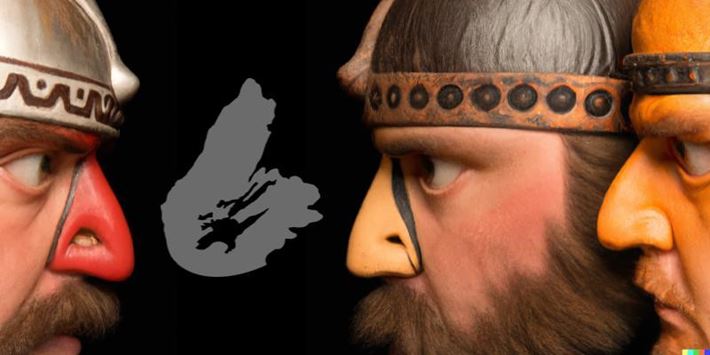I’m posting this as a helpful guide (or warning) to any organizations that have, or plan to have, projects in Cape Breton.
I’ve seen too many public relations failures that end up creating controversy and divisiveness in our community — much of which can easily be avoided with modern thinking.
Here are a few examples:
- Donkin Mine
- Municipal Funding — CBRM vs Province of NS
- Sydney Cottage Road B&B Demolition
- Sydney Fire Station on George Street
- Cabot Airport
- Big Pond RV park
- Mother Canada Statue
- Port of Sydney (x10)
- And many more that you can post in the comments below.
What do these projects have in common?
First, they alter the physical landscape of Cape Breton Island in some way.
Second, they used old-school thinking when it came to communicating with the local community — mostly keeping us in the dark.
The result — lots of controversy.
Rumours and misinformation spread. Supporters and critics organized. Neighbours were pitted against neighbors. And instead of building goodwill in Cape Breton, these projects divided us.
To be clear, I'm not saying that the projects themselves are bad — some may be very good for Cape Breton. The problem is in the lack of communication.
Build Goodwill
My objective here is to help good projects do good for the community, so allow me to describe the old-school method so it can avoided.
Here’s how it typically goes:
- You think up a project.
- You privately contact a few politicians and community leaders to get them onside.
- You put out a news release.
- Your news release gets picked up by the local media.
- The local media asks a few softball questions and never challenges your claims.
- A story or two is published that makes you look good.
So far so good you’re thinking. But not so fast!
- You begin working on the project.
- People start hearing more about the project but have no real information.
- You are busy focused on your project and do not feel a need to share any more information (because that's what old-school thinking is about).
- Concerns about the project begin to develop.
- Rumors start to spread — some are true, some are not.
- You ignore them (because you're busy and that’s what old-school thinking is about).
- You continue working on the project.
- Controversy builds.
- You ignore it again (because that’s what old-school thinking is about).
- Controversy organizes and now there is serious momentum against your project.
- You panic and try to get support from the media and politicians to tell your side of the story.
- That doesn't work, so you launch efforts to rally the broader community to your side — with the promise of jobs, or modernization or other carrot.
But it’s too late. The damage has been done. You cannot overcome the rumours and misinformation and organized resistance. Even if your project succeeds, you’ve failed to uplift the community. A project that was good is now not so good.
What happened?
The old-school method used to work when people got their news from one or two sources. And when citizens were less focused on the environment and less likely to question their leadership.
But it’s a new world. We get our news from everywhere. We no longer trust our news sources or our leadership. While at the same time, we believe crazy conspiracy theories. That’s irony right there — not trusting anything while believing in everything.
How the heck do you combat that?
The answer is through thoughtful and deliberate communication. And being transparent and authentic. From the beginning of a project through to the end. Keep the wider community informed.
And you have to do this using popular communication channels — you cannot rely on the news media to tell your story. Why — because the news media will only publish a tiny part of your message. They may not ask the important questions. And they often get your responses wrong too.
You need to go deep. You need to give the community more information, not less. You need to share it where they will see it — and not expect them to find it from one source. And it has to come from you.
This type of communication is not hard. You just have to be aware of how critical it is to do — and then do it.
Because if you don’t tell your story, someone else will — and you probably won’t like it.





14
Log In or Sign Up to add a comment.- 1
arrow-eseek-e1 - 6 of 6 itemsFacebook Comments